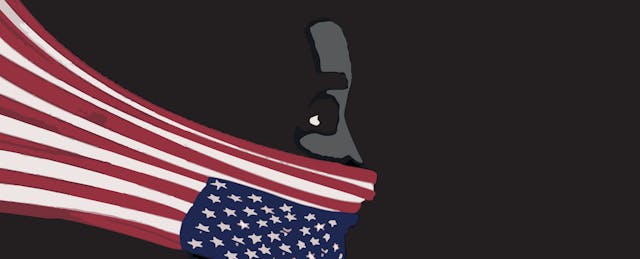When Colin Kaepernick began kneeling for the National Anthem, a teacher friend of mine felt compelled to offer her support, so she started kneeling during the Pledge of Allegiance. Many of her students thanked her after class, saying her silent protest made them feel heard and understood.
And then came the backlash. Some parents complained that her statement was “liberal” and “too politically charged.” They contacted the administrators who responded by sending her a strongly worded email demanding that she stop kneeling. She didn’t have to say the Pledge of Allegiance, but she should probably stand and mouth the words. She certainly couldn’t kneel. She was a Spanish teacher, you see; the Black Lives Matter movement had nothing to do with foreign language.
I understood what she was going through because I had experienced a similar issue in my classroom. I was asked by some parents and students to remove a LGBTQ+ pride flag that hung on my wall. I can recall all the points of the various arguments: being gay was a choice; not identifying with your sex at birth was “weird” and “immoral;” it was either the gay flag or Christianity. Which community was I going to support? Whose side was I on?
Fortunately, I was never asked by my administrators to remove the flag. Some just wondered aloud if maybe it was a “bit big” or too prominently displayed. Why was it larger than the tiny, tattered American flag that came with the classroom?
Black Lives Matter and LGBTQ+ are not the same issue, but I can’t help but see the similarity in our situations. We both stood up for what is unquestionably right and the response was that we were being too political. Because in education, you have to make sure everyone’s opinions are represented. Educators must respect the political, religious and cultural beliefs of a diverse clientele.
For the most part, I understand this tacit rule. Educators need to be sure we aren’t using our own privilege and power to influence minors to think exactly as we do. We aren’t infallible, and we definitely aren’t always right.
Sometimes it’s difficult to stay silent; by the end of the last election, my tongue was permanently bloodied from how much I had to bite it. But most times allowing students to find their own truth is so much more rewarding than choosing it for them, like when my AP Language class used ethical philosophy to defend an opinion on border control.
But what happens when we’re expected to remain silent when a student is clearly wrong? When the world is clearly wrong?
I think about how teachers must have been instructed to handle the issue of school desegregation after Brown v. Board of Education. Were they told to respect the feelings of the racist students and parents who protested the ruling?
Teachers are supposed to teach the nation’s children, and our lessons extend far beyond academics. We teach teamwork, social-emotional skills, ethics and morality.
As long as it’s not political.
Education started being political when we decided that the voices of the intolerant were equal to the voices of those who spoke out for justice and equality. Which, if history is any proof, has been always.
And this is education’s greatest mistake.
When it comes to civil rights, equal rights, gender rights—basic human decency—there is no debate. Sometimes beliefs, values and opinions are wrong. Sometimes people are wrong. Racism is wrong. Xenophobia is wrong. Sexism is wrong. Homophobia is wrong. Transphobia is wrong. Police brutality is wrong.
And if we don’t allow educators to teach those lessons, if we silence the voices that speak for human decency by deeming it a political agenda, then how do we expect our world to ever change?


